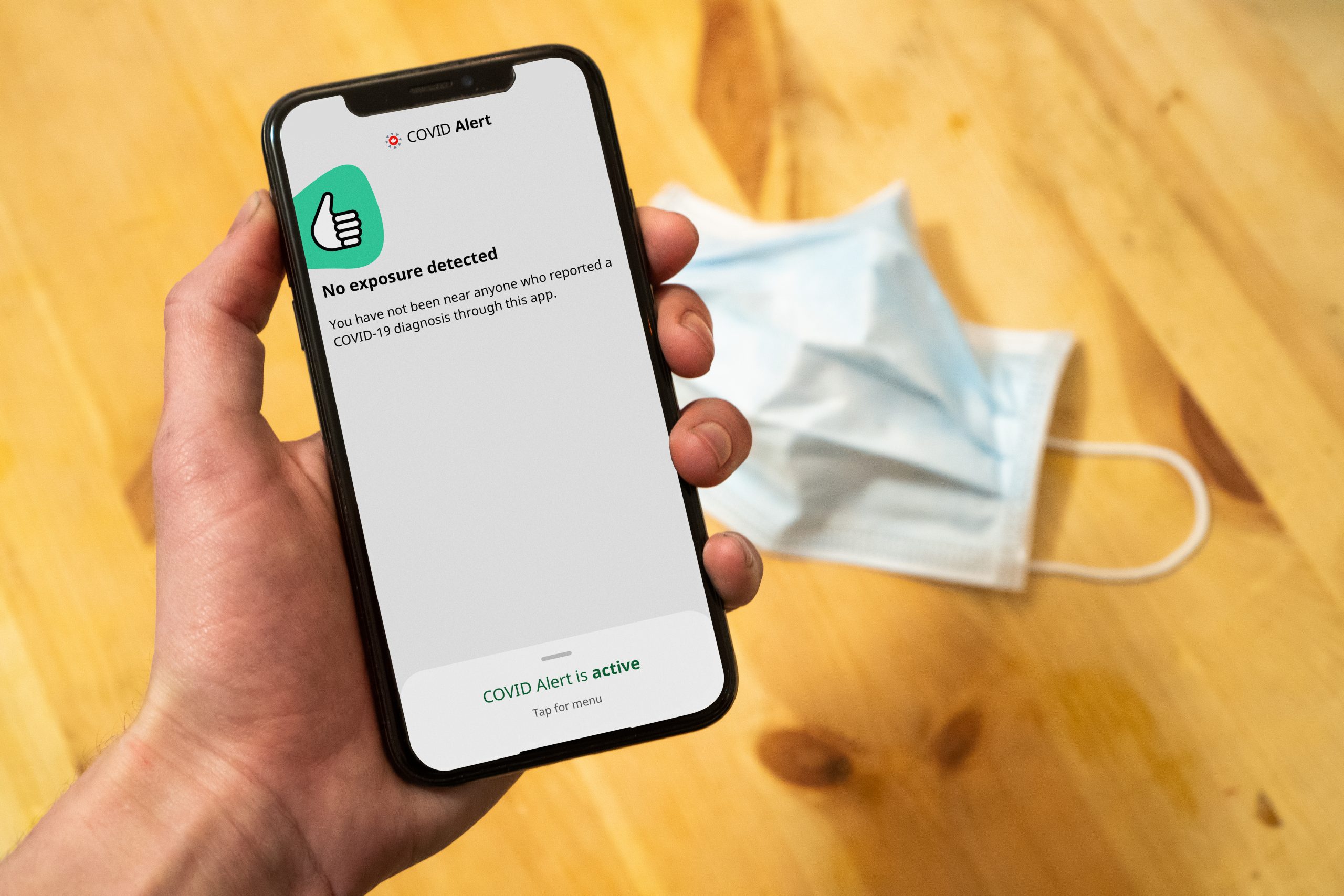While some students are happy to use the new app, others have privacy concerns
Earlier this month, the COVID Alert app went live in Quebec. Many Quebecers were eager to have a new tool to slow the spread of the virus. However, some still aren’t willing to download the app.
The COVID alert app works with Bluetooth and random codes. Essentially, the Bluetooth signal detects phones that are near yours. Then the phones send each other random codes. If you contract COVID-19, you will have to enter a code into the app, which will notify all the people you came into close contact with that they may have been exposed to the virus.
“We have to use the application massively for it to work,” said Edith Joly, a family doctor in Montreal. “If not many people use it, it destroys its purpose.”
Despite her concerns about the app not having enough users to function correctly, over four million Canadians have already downloaded it, including university students like Marc-Olivier Gagné, an Engineering student at the Royal Military College of Canada who normally resides in Montreal.
“I think it’s a great tool to help combat COVID.”
Ashlee, a recent University of Ottawa graduate who lives in Gatineau, also believes this app could be beneficial to public health and safety.
“I think this app could help lower the cases if we all use it.”
However, many students aren’t as eager as Ashlee and Gagné to download the app due to privacy concerns such as the government tracking their location, or collecting personal information.
“I don’t know if they’re tracking my phone,” said Isabella Hernandez, a second-year HEC student. “I don’t know if the government is trying to issue tickets with this new app or collect my personal information.”
Contrary to Hernandez’s concerns, a Health Canada product manager asserted the app is “not tracking any of our data … There is no breach of privacy because the app is using Bluetooth and codes.”
The Government of Canada also stated, “The COVID Alert app creates a random code, so that no one will know your name, or your location.”
Some students who have already downloaded the app believe that those who aren’t willing to download it should consider what they are already doing on the internet.
“I don’t know how much of your liberty you’re conceding when you use this app considering your bitmoji appears on the Snapchat map,” said Gagné.
Gagné is referencing the feature on Snapchat that tracks users GPS location and displays it on a map featuring a cartoon version of the user.
Those who use Facebook and not the COVID Alert app are also criticized.
“I find it hypocritical to argue that you don’t want to use the COVID Alert app when you’re on Facebook and other social media,” said Ashlee. “I would rather the government have my information than private companies.”
Facebook has been criticized in the past for sharing user data with third-party companies for advertising purposes.
However, privacy concerns are not the only thing preventing people from wanting to download the app.
Some students believe the app wouldn’t work because people wouldn’t put in the effort to get tested or quarantine upon getting the app’s notification that they were exposed to the virus.
After hearing all the reasons people don’t want to download the app, retired health practitioner Dr. Judy Flecknell doesn’t understand why people won’t download the app if there’s a possibility it may help keep people safe.
“I think people have a responsibility towards others within our population,” stated Dr. Flecknell. “Downloading the app is not an invasion of your privacy, and keeping your loved ones safe is what’s important.”
The ongoing reluctance of so many to want to download the app could indicate that the government needs to find a better way to demonstrate that they aren’t collecting any user information.




